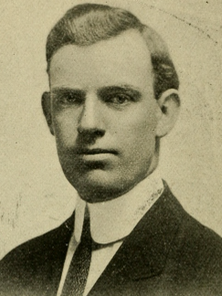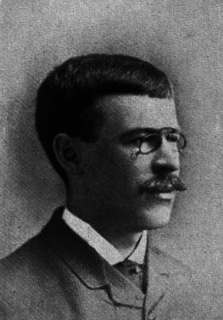Related Research Articles

James Michael Curley was an American Democratic politician from Boston, Massachusetts. He served four terms as Mayor of Boston. He also served a single term as Governor of Massachusetts, characterized by one biographer as "a disaster mitigated only by moments of farce" for its free spending and corruption. He also served two terms, separated by 30 years, in the United States Congress and was a frequent candidate for other state and national offices. He was twice convicted of criminal behavior and notably served time in prison during his last term as mayor. He is remembered as one of the most colorful figures in Massachusetts politics.

Maurice Joseph Tobin was an American politician serving as Mayor of Boston, Massachusetts, the Governor of Massachusetts, and United States Secretary of Labor. He was a Democrat and a liberal who supported the New Deal and Fair Deal programs, and was outspoken in his support for labor unions. However, he had little success battling against the conservative majorities in the Massachusetts legislature, and the U.S. Congress.

The mayor of Boston is the head of the municipal government in Boston, Massachusetts. Boston has a mayor-council system of government. Boston's mayoral elections are non-partisan, and elect a mayor to a four-year term; there are no term limits. The mayor's office is in Boston City Hall, in Government Center.

William Sarsfield McNary was an American Democratic politician who served two terms as a U.S. Representative from Boston, Massachusetts and exercised tremendous influence over the Massachusetts Democratic Party.

Edward Francis McLaughlin was an American politician from Boston.

John Robert Murphy was a Massachusetts politician and attorney who served as the Commissioner of the Boston Fire Department, Chairman of the Boston Finance Commission and in both branches of the Massachusetts legislature.
John C. Carr was an American politician who served as Mayor of Medford, Massachusetts, Chairman of the Massachusetts Democratic Party, and City Manager of Medford.
Joseph McGrath was an American politician who served as acting Mayor of Boston during the tenure of James Michael Curley, Chairman of the Massachusetts Democratic Party, and Collector of Customs for the Port of Boston.

The 2018 Massachusetts gubernatorial election took place on November 6, 2018, to elect the governor and lieutenant governor of the Commonwealth of Massachusetts. Republican Governor Charlie Baker and Lieutenant Governor Karyn Polito sought reelection to a second term in office, facing Democratic challengers Jay Gonzalez and Quentin Palfrey, respectively. Candidates were selected in the primary election held on September 4, 2018.

Joseph A. Langone Jr. (1896–1960) was a Massachusetts state senator from 1933 to 1940, and was Boston Election Commissioner in the 1940s.
Eugene M. McSweeney was an American public safety official who served as Massachusetts Commission of Public Safety and Boston's police and fire commissioner.

Charles Henry Cole was an American military and government official who served as commissioner of the Boston police and fire departments as well as Adjutant General of Massachusetts. During World War I, he commanded the 52nd Infantry Brigade of the 26th Infantry Division. In 1928, he was the Democratic nominee for Governor of Massachusetts.

The Boston mayoral election of 1945 occurred on Tuesday, November 6, 1945. Former Mayor of Boston James Michael Curley defeated acting mayor John E. Kerrigan and four other candidates.
William Arthur Reilly was an American political figure from Boston who served as the city's deputy mayor and fire commissioner and was member of the school committee and finance commission.

Theodore A. Glynn was an American politician who served as clerk of the Roxbury District Court and commissioner of the Boston Fire Department. He was a candidate for mayor of Boston in 1925.
Warren L. Bishop (1890–1939) was an American lawyer and politician who served as District Attorney of Middlesex County, Massachusetts from 1931 to 1939.
Leo Francis Curley was the son of American politician James Michael Curley. Seen by the elder Curley as his successor in politics, Curley served as the city's traffic commissioner during his father's final term as Mayor of Boston. Leo Curley died shortly thereafter at the age of 35.

The 1938 Massachusetts gubernatorial election was held on November 8, 1938.

The 1942 Massachusetts general election was held on November 3, 1942, throughout Massachusetts. Primary elections took place on September 15.
Frank A. Goodwin was an American politician who was Massachusetts Registrar of Motor Vehicles from 1920 to 1928 and from 1935 to 1944.
References
- 1 2 3 Bartlett, K.S. (June 14, 1953). "New Fire Commissioner Has Gift for Making Friends". The Boston Daily Globe.
- ↑ "Cotter Under Fire For Use Of Frank". The Boston Daily Globe. November 13, 1937.
- ↑ Merrill, John D. (December 1, 1937). "Flaherty Nominee For Congress Seat". The Boston Daily Globe.
- ↑ "Flaherty Wins By 2-1 Lead". The Boston Daily Globe. December 15, 1937.
- ↑ Election Statistics 1940 . Retrieved July 21, 2019.
- ↑ Election Statistics 1946 . Retrieved July 21, 2019.
- ↑ "John Cotter, Fire Comm., Dies in Hospital". The Boston Daily Globe. January 23, 1954.